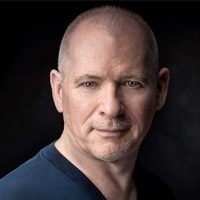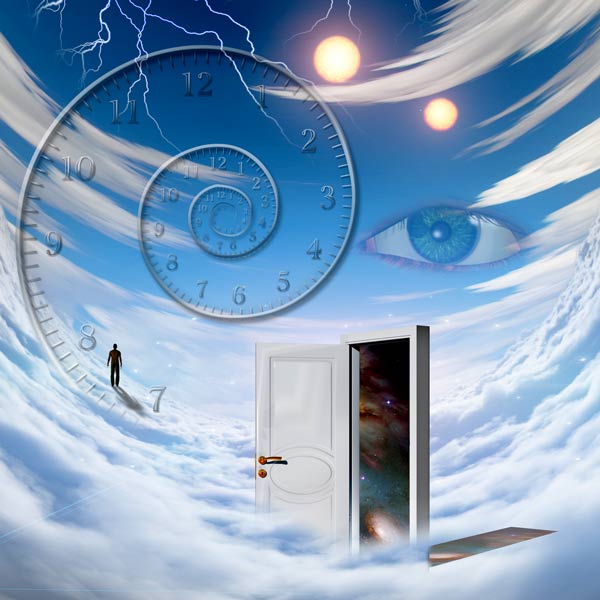“Every kairos is a chronos,
but not every chronos is a kairos.” — Hipporates
It seems simple enough on the face of it, but what does time really mean?
If you’d asked an ancient Greek to define it, he would have asked you which aspect of time you were talking about. You see, the Greeks had three distinct concepts of time: aion, chronos and kairos.
Personified as gods, Aion represented the everlasting eternity of the Greek Cosmos, whereas Chronos symbolized clock time, and Kairos the right time. Together, they explained humanity’s place in a temporal world as it moved forward through eternity.
Chronos: The March of Time
More on kairos later, but if aion is the ocean, then chronos is its current.
Chronological time is what we’re all familiar with. It’s linear and sequential. We measure it with clocks and use it to gauge the velocity of objects through space. Seconds lead to minutes, to hours to days. It’s the perspective that governs our daily lives.
Some believe we’ve become slaves to chronological time. We say, “Time stops for no one” and “Time is money.” It’s a commodity to be spent—to be saved or wasted. We even give slices of it an identity—those occasions we call Christmastime and springtime, or when we talk of “the time of the dinosaurs” or “Roman times”.
Our problem is that chronos is constantly ticking. We can’t slow or stop it, and once it’s lost you can’t get it back.
Speaking of my own experience, I often feel like I’m pressed for time, and I get impatient when I waste my time standing in an endless queue or if I’m left waiting on a platform for an overdue train.
Kairos: The Time is Ripe
When our ancestors came down from the trees and walked out into the world, they would have had an understanding of chronological time … how it stretched out into the future. Given their knowledge of the present, they would have observed that seasons passed and grasped the need to plan ahead for cycles of hunger and plenty. Their survival depended on long-term thinking.
But understanding the quality of time required a leap of cognitive ability.
Ancient Greeks made a distinction between the quantity of time and its quality—between chronos and kairos.
Nowadays, everybody craves more family time or ‘me’ time, as if these are endowed with better quality. Not so! These are meaningless boxes of chronological time. They may be filled with potential, but what determines our experience is how we fill that box. And whether we enjoy or not is subjective.
When I say kairos is about the quality of time, I’m not talking of it in terms of having a good time or a bad time. These are just labels we project into the box, often with hindsight. What may be a great time to one can be hell on earth to another. Our opinion says nothing about the intrinsic qualities of time itself.
I think that chronos and kairos are better understood in terms of questions. When we ask, “What time is it?” the answer is expressed in chronological terms. But when we ask, “What is it time for?” the answer brings us closer to the meaning of kairos.
Today we live in chronological world, and the concept of kairos is all but lost. We have no equivalent word in the English language, but kairos is the notion of an appropriate time. Something is about to happen; there is an opportunity to be seized, and what we decide will affect our future. Call it the moment of truth, or carpe diem. Kairos describes the moment when the time is ripe to take destiny into our hands.
Take this passage from the book of Ecclesiastes:
“To every thing there is a season, and a time to every purpose under the heaven: A time to be born, and a time to die; a time to plant, and a time to pluck up that which is planted…”
When the Greeks first translated the Bible from Hebrew, they expressed every reference to time in the above passage as kairos, not chronos.
Evaluating Time
If chronos is about measuring time, then kairos is about judging it — not its seconds or minutes, but its significance.
I think of kairos as an open door—an invitation to reflect before jumping in. Viewed like this, kairos doesn’t rule us. It gives us space to control our future. Time spent in Kairos is never wasted.

Stephen Chamberlain is the author of the fantasy novel Graëlfire. He draws inspiration from the impact of landscape on myth, and the association of liminality with the supernatural and magic. Stephen lives in Switzerland.




Bro. Stephen what a wonderful passage on time. I have never experienced this type of undrstanding dealing with time, thank you!
Dear Ronnie,
Many thanks for your feedback. I’m pleased you found the post insightful.
Best Regards,
Stephen
Thank you so much for your explanations about the deeper concept of God’s time. I believe this is helpful for every one and especially for those who have a passion to work in God’s Kingdom.
Dear Fasil,
Thank you. Glad you liked it.
Like the others, thank you for the clear explanation of the difference between the two. I knew the general concepts. The way you discuss them give me an even better understanding of the two. Sadly, I agree that “ Today we live in chronological world, and the concept of kairos is all but lost.”
Hi Doug,
Glad you found the post useful. The older I get, the more I appreciate those Kairos moments.
Best regards,
Stephen
Very helpful and insightful.
Vividly explained ?.
Very much appreciated and God bless you
Dear Pastor Agboh,
Thank you for your kind remarks. Glad to know this was helpful for you.
Best Regards,
Stephen
I think God controls the chronos while we control the kairos.
The chronos moves forward and there’s nothing we can do about it . It’s begining and it’s end belongs to God only.
Kairos is captured by our ability to see the value of it.
The Bible say to take every opportunity to be wise as the days are evil.
The value of kairos is different for everyone and the experience of it is unique to each individual.
The wiser we are the more we are able to see those kairos moments.
Dear Stephanie,
Thank you for sharing your perspectives. I agree our experience of kairos time is a personal one. We get out of it what we put in.
Kind regards,
Stephen
It gives me some clarity on something I often wander about
Dear James,
Much appreciated. Pleased you found the post helpful.
Most grateful for a ‘timely’ insight . For what you said, Kairos requires engagement from us, is uniquely individual the way you explained it. In this life where we rush to go nowhere, thank you for reminding me to consider quality. I think we care a bit more of that when you are older. I’m glad I finally found a now have a clear understanding of all terms, specially of kairo. Much appreciated!
Hi Aida,
Thanks for sharing.So glad it struck a chord.
Please comment on “temporary”… from 2 Corinthians 4:18 things seen are “temporary”(Greek from pros and Kairos “for a season”) things not seen are “eternal”
Hello Wayne. Thank you for your query.
I understand 2 Corinthians 4:18 to mean that the visible (i.e. physical) world is transitory and the unseen (i.e. spiritual/divine) realm is eternal.
This is consistent with the Greek version of the verses, which uses the adjectives proskaira (which translates into English as temporary) to describe what is seen and aionia (which translates as eternal) to describe what is unseen:
μὴ σκοπούντων ἡμῶν τὰ βλεπόμενα ἀλλὰ τὰ μὴ βλεπόμενα· τὰ γὰρ βλεπόμενα πρόσκαιρα, τὰ δὲ μὴ βλεπόμενα αἰώνια.
I’m no Greek scholar, but the usage of these Greek adjectives seems logical to me. Proskaira is derived from the Greek word Kairos which is used throughout the Greek bible version to describe an opportune or divinely appointed moment or season (in other words an aspect of time that has limited duration). Aionia is derived from aionios, which means perpetual in Greek (an aspect of time that is endless).
That’s my take. I hope this answers your question.
Best regards,
Stephen
Hello from a modern Greek living in Greece. But we still speak here that ancient language where every word was scheduled to have a full meaning. I appreciated your distinction of qualitative and quantitatove time ( kairos vs chronos)something I had never thought before even if I am anthropologist. I have to complete yr interesting article with two or three supplements.
1/ There is a modern Greek philosopher 90 years old now, who was my mentor professor and rector in the faculty of humanities and Academician Euaggelos Moutsopoulos who is named “the philisopher of kairos”a Platonist who s dissertation was on the role of music in the work of Plato and also a professional musician and composer. You can find some videos of his talks by clicking his name in google.
2/ There is another notion of time as periodical time or circular (periodos in greek is strictu sensu the way going around in other words the circle). ( οδος is way and street in the same).This was better analysed by Mircea Eliade the famous historian of Religions escaping from his native Rumania to France and later to Chicago university where he tought till the seventies. His notion of illo tempore also has the meaning of Primordial and unsuspected (mytholigical )time. Periodical is the time of seasonal events repeated in a circular way as rituals following the seasons of year .
3/ There is a second notion of kairos very much used in modern greek language signifying the weather. Sailors use very much this term but everybody too when saying kalo kairia meaning good weather. So this is also manifesting a quality and not a quantity.
In conclusion while chronos is time to be measured , kairos remains as a chance to use in the best way but not to gain personal profits. So it aquires a moral value something almost lost in ourtimes ( our kairoi)of accelerated speed and fury to transform useful chronos to money. Kairos is a potentiality to do something better this Aristotelian εν δυναμει or POTENTIAL in other words the POSSIBILITY to have the best result but not necessarily a material profit
Dear Nikos,
Wonderful feedback! Thanks for sharing your insights. Your perspectives opens a new aspect of time I hadn’t considered before. I’m looking forward to exploring it.
Best regards,
Stephen
Some more notes about Kairos :
Kαιρο σκοπος means in ancient and modern greek a person who is waiting the right opportunity to achieve a goal. Skopos means target or goal. By this the sense of kairos as opportunity is good chance is clearly demonstrated.
Another verb from kairos is καιρο φυλακτω a composite verb where the second part is to guard or to wait in alarm. So kairofylakto means waiting in alarm to catch the proper moment to act.
Both composite words have positive meanings but the first can take a meaning of somebody who is waiting to profit.
Also the adjective καιριος coming from kairos means the main one . An example is the expression καιριο κτυπημα or main (mortal) hit.
Finally kairos has the meaning of epoch. Here there is a characterestic expression in modern greek using both chronos and kairpos.ΠΑΛΙ ΜΕ ΧΡΟΝΙΑ ΜΕ ΚΑΙΡΟΥΣ meaning again by times and by epochs. This is used when we want to say that we can recapture some lost lands in the depth of future
What a beautiful explanation of time and how we should be living with purpose and intent to cease opportunity. Love this and opened my mind to learn more about living in Kairos time!
Dear Alexis,
Thank you for your positive feedback. Much appreciated. There is a lot to be gained from deepening our awareness of Kairos time!
I followed the link in your Capricorn article to this one both of which I found amazing. I have a question. How are Capricorns ruled by Kairos time if it just the time is ripe? Do we know things are going to happen because the time is ripe for it to happen for an individual or please explain how this works. It turns out I’m a hybrid of all 3 types but the last one about pushing away my gifts at an early age and coming back to them later in life was so spot on it was a bit freaky.
I just realized it was a hyperlink from mysticmedusa not one of yours so I should probably direct the question to them unless you do know the answer.
Dear Chris,
I don’t have the answer, but thanks for reading. Hopefully you will find what you’re looking for from the other enquiry you made.
Best regards,
Stephen